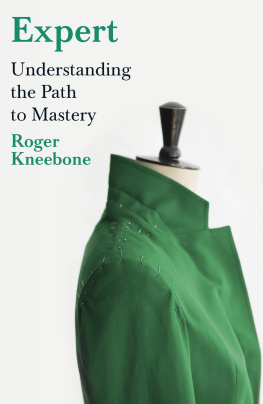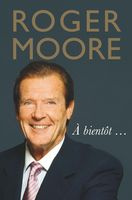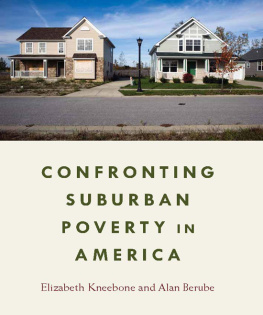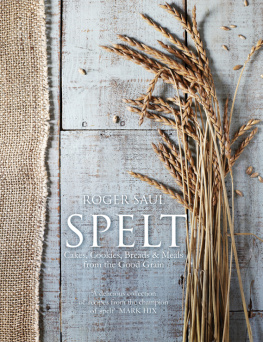Roger Kneebone - Expert
Here you can read online Roger Kneebone - Expert full text of the book (entire story) in english for free. Download pdf and epub, get meaning, cover and reviews about this ebook. year: 2020, publisher: Penguin Books Ltd, genre: Religion. Description of the work, (preface) as well as reviews are available. Best literature library LitArk.com created for fans of good reading and offers a wide selection of genres:
Romance novel
Science fiction
Adventure
Detective
Science
History
Home and family
Prose
Art
Politics
Computer
Non-fiction
Religion
Business
Children
Humor
Choose a favorite category and find really read worthwhile books. Enjoy immersion in the world of imagination, feel the emotions of the characters or learn something new for yourself, make an fascinating discovery.
- Book:Expert
- Author:
- Publisher:Penguin Books Ltd
- Genre:
- Year:2020
- Rating:3 / 5
- Favourites:Add to favourites
- Your mark:
- 60
- 1
- 2
- 3
- 4
- 5
Expert: summary, description and annotation
We offer to read an annotation, description, summary or preface (depends on what the author of the book "Expert" wrote himself). If you haven't found the necessary information about the book — write in the comments, we will try to find it.
Expert — read online for free the complete book (whole text) full work
Below is the text of the book, divided by pages. System saving the place of the last page read, allows you to conveniently read the book "Expert" online for free, without having to search again every time where you left off. Put a bookmark, and you can go to the page where you finished reading at any time.
Font size:
Interval:
Bookmark:

PENGUIN BOOKS
UK | USA | Canada | Ireland | Australia
New Zealand | India | South Africa
Penguin Books is part of the Penguin Random House group of companies whose addresses can be found at global.penguinrandomhouse.com.

First published by Viking in 2020
Copyright Roger Kneebone, 2020
The moral right of the author has been asserted
Cover photo Getty Images
The publisher is grateful for permission to use the following: on pp. , extract from A Guide for the Perplexed by E. F. Schumacher 1977
ISBN: 978-0-241-98614-1
This ebook is copyright material and must not be copied, reproduced, transferred, distributed, leased, licensed or publicly performed or used in any way except as specifically permitted in writing by the publishers, as allowed under the terms and conditions under which it was purchased or as strictly permitted by applicable copyright law. Any unauthorized distribution or use of this text may be a direct infringement of the authors and publishers rights and those responsible may be liable in law accordingly.
To Dusia
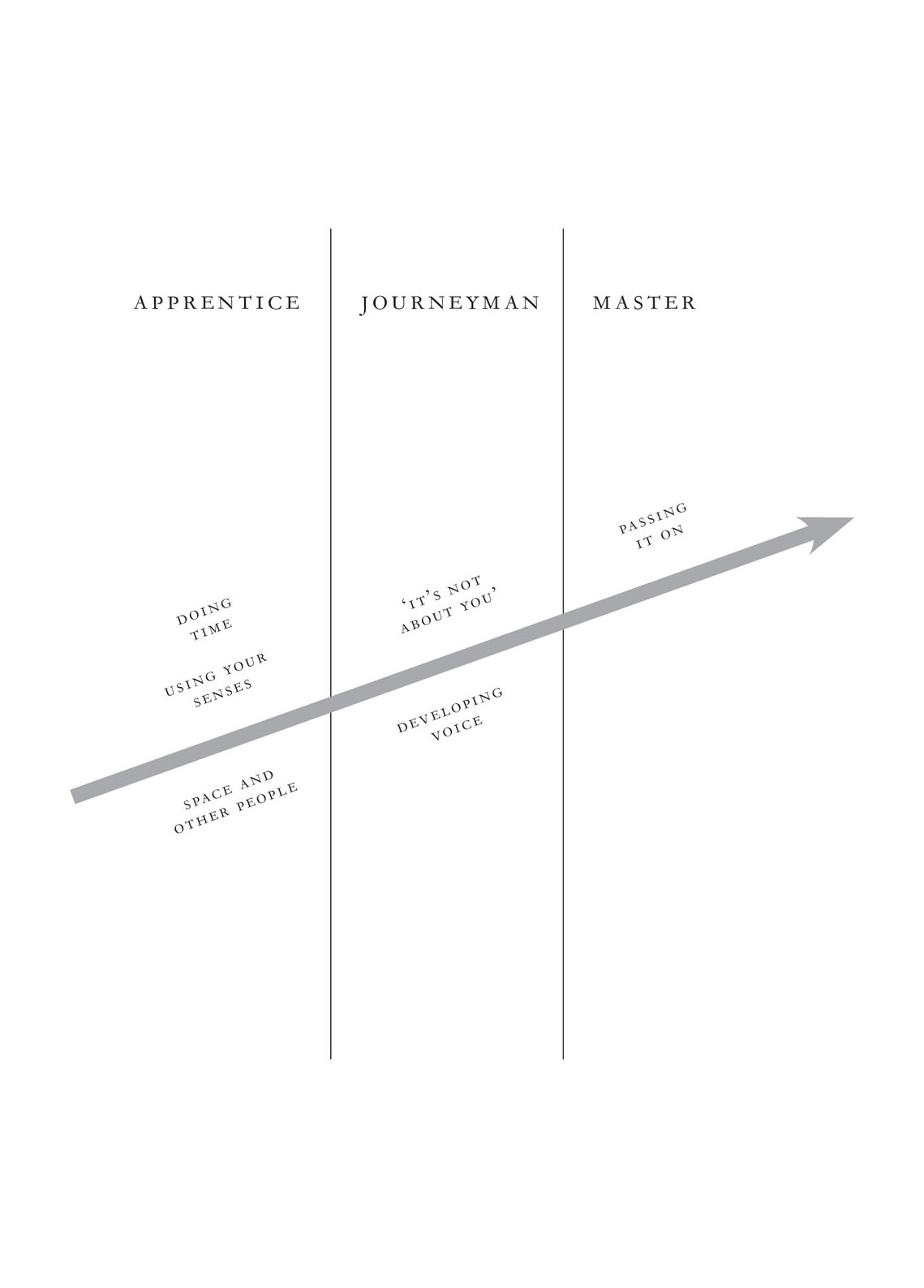

When I visited Derek Frampton, he was posing a clouded leopard. Id never seen a clouded leopard before. She was sitting like a cat, her tail curled round her, gazing at a tiny cub which looked as if it was about to run away and play. They were so realistic I could hardly believe they were stuffed.
Derek is a taxidermist, one of the best there is. Hed invited me to his house to see how he works. We were in his display room, full to bursting with animals of every kind. Glass cases of birds and reptiles, every surface covered with creatures. On one table was a parakeet nearing completion, its wings held in position by threads; on another was an alligator with its jaws about to snap shut, next to a tree frog glowing like a jewel in the sunlight. Apart from the eerie stillness, it was like being in a menagerie.
Id arranged to visit Derek because hes one of the countrys leading experts in his field. Im interested in experts and I wanted to find out more. Moving a half-finished skink from a chair so I could sit down, Derek explained what taxidermy involves.
He made the process sound pretty straightforward. You remove the animals skin, recreate its body shape with a plaster model and place the skin over the model. He showed me a zebras hide, shapeless and slumped in a corner. When I asked how he would create the plaster shape for those final stages, he said, Well, you just sculpt a zebra that size and put the skin back on.
Its that just thats key. If you want a zebra, you just sculpt one that size. Its obvious. But to me it isnt obvious, its unimaginable. Its what makes Derek an expert.
Taxidermy is not a science, a craft or an art, Derek told me. Its a practice which combines all three. The science is in the precision, close observation and accuracy which allow his work to be a reference point for scientific research. Zoologists may refer to Dereks specimens for years to come, so the precise details of a mammals colouring, a fishs scales or a reptiles teeth might be crucial in identifying new species or tracking the decline of animal populations. The craft is in the skills Derek has built up throughout his career: his ability to take the skin off an animal, then recreate that specimens unique shape in plaster or wax. And the art is what brings it all together, making that clouded leopard look as if shes about to stoop down and lick her little cub. Its because hes an expert that Derek can combine these strands, applying them with wisdom and care to each new situation. Becoming expert is what this book is about.
Im a doctor. Medicine, too, is not a science, a craft or an art, but a practice which combines all three. Of course it is founded on science, that factual knowledge I spent so long studying as a student. The craft is how I worked as a practitioner, examining patients, operating on them or talking with them in my consulting room. The art is how I made sense of each patient and the problems they brought to me. The connection between Derek and me might not seem obvious at first, since surely taxidermy and medicine are completely different worlds. But thats not the case at all.
After explaining the basics, Derek took me into his workshop, which was like an alchemists laboratory. The room was full of works in progress and there were all sorts of animals birds and mammals, fish and reptiles. Creatures large and small, at every stage of preparation. An edible dormouse was on his workbench, a gorillas head hung on the wall, and an antelopes torso stood in a corner. The air smelled of glue and plaster, and gurgling noises came from the next room.
In the centre of the room was the wooden cabinet where Derek keeps his most precious tools, the ones he inherited from his master. He only has a few and hes been using them for decades. The cabinet is the size of a wind-up gramophone and has two brass-handled drawers. On top is a turntable, where a tiny clay frog lay next to some of Dereks sculpting instruments. Rotating the turntable slowly by hand, Derek can work on specimens like that frog without damaging them. All around are the materials he needs. His workshop is where the science, craft and art come together.
Derek has been a taxidermist for forty-five years, mounting (setting up, he calls it) everything from giraffes to shrews, from Komodo dragons to fish. Hes in high demand by museums, zoos and private collectors. Though much of his work is with new specimens, he also conserves examples from scientific collections of animals and birds that are now disappearing or even extinct. Expert taxidermists, like many of the animals they work with, are rare creatures indeed.
I asked Derek how he started his career. At school, he told me, he loved art. He was good with his hands but hes dyslexic and he found studying difficult. When he was twelve he came across a dead blackbird on the road, took it home and started to draw it. He was fascinated by the birds anatomy, by the delicate mechanism of its wings. From then on, he collected as many dead animals as his mother would let him get away with, drawing and painting them as accurately as he could. His epiphany, as he described it, came when he was sixteen. One day he realized that he didnt have to draw these animals as he found them; instead, he could pose them. He never looked back. He joined the Natural History Museum in London as an apprentice taxidermist, working there for many years before striking out on his own.
Not everyone can become an expert taxidermist like Derek. Not everyone would want to. Yet finding out how Derek and others like him in different fields have become so expert is relevant to all of us. What does it mean to be an expert? How do you become one? What makes Derek an expert, rather than just someone who is very good at what he does?
We can all become expert at something, though we probably cant become really expert in more than one or two areas. To become an expert you have to concentrate on your selected field, pushing distractions aside and focusing intently for year after year. Its a long, demanding process that takes great effort, and theres a lot of frustration along the way. This sounds obvious, but its something people often overlook. We live in a world that demands immediate results. We are also taught to believe that talent is innate, and that if you dont show flair for something, it isnt worth pursuing. I dont think either of those things is true. Moving along the path towards becoming expert brings its own rewards: the slow march towards mastery is deeply satisfying and, as well discover, it meets a fundamental human need. Besides which, you wont find out how talented you are until you try.
Font size:
Interval:
Bookmark:
Similar books «Expert»
Look at similar books to Expert. We have selected literature similar in name and meaning in the hope of providing readers with more options to find new, interesting, not yet read works.
Discussion, reviews of the book Expert and just readers' own opinions. Leave your comments, write what you think about the work, its meaning or the main characters. Specify what exactly you liked and what you didn't like, and why you think so.

